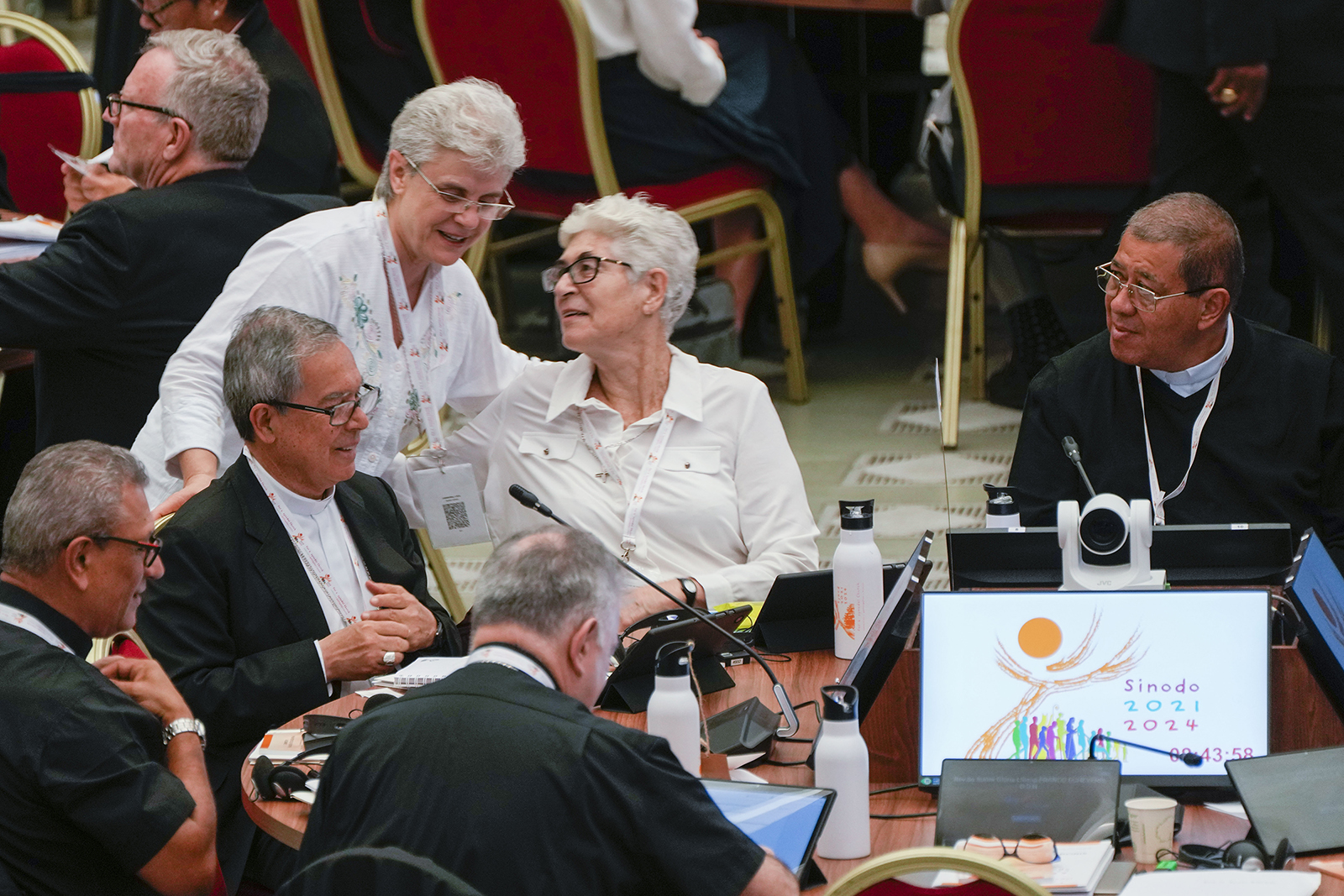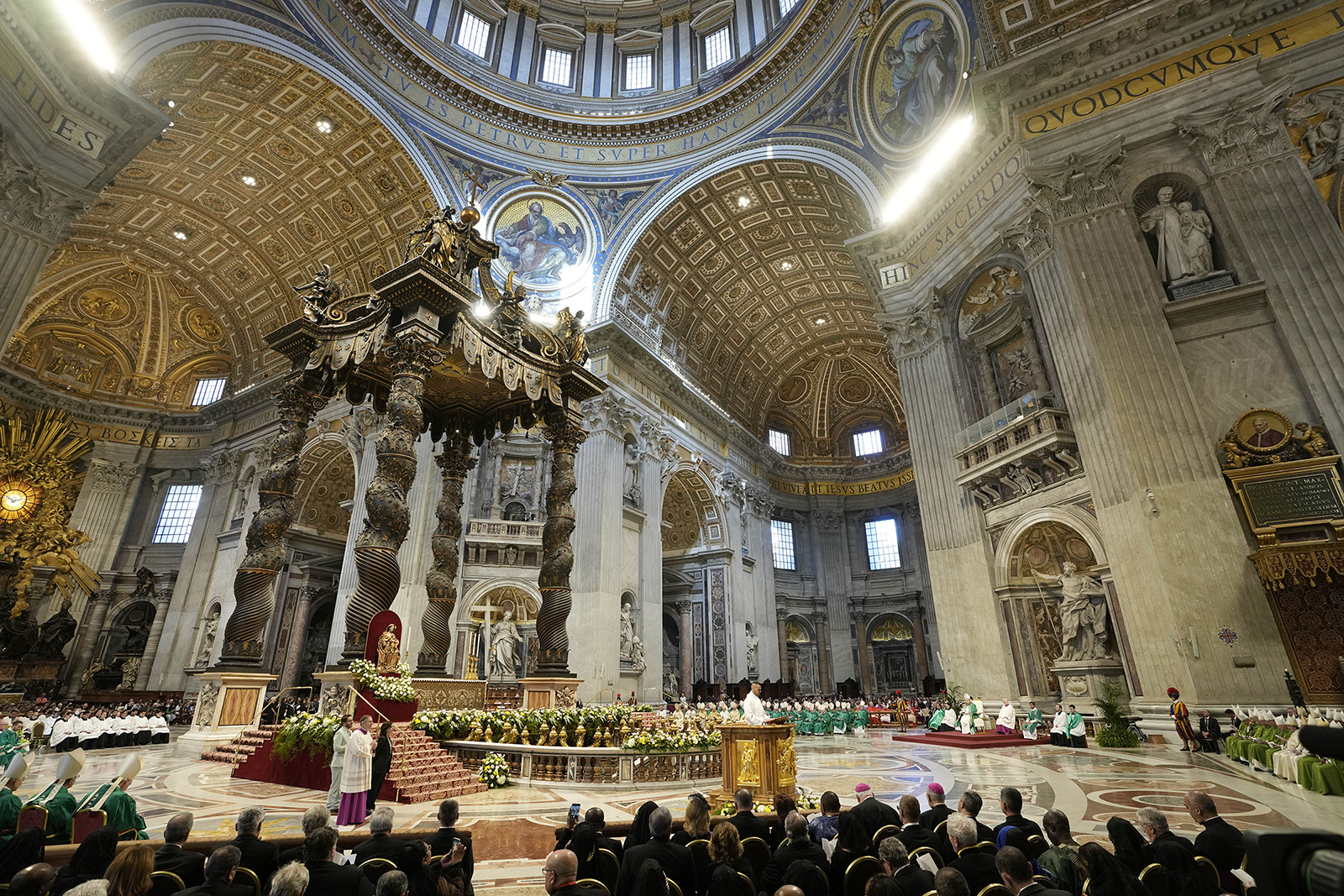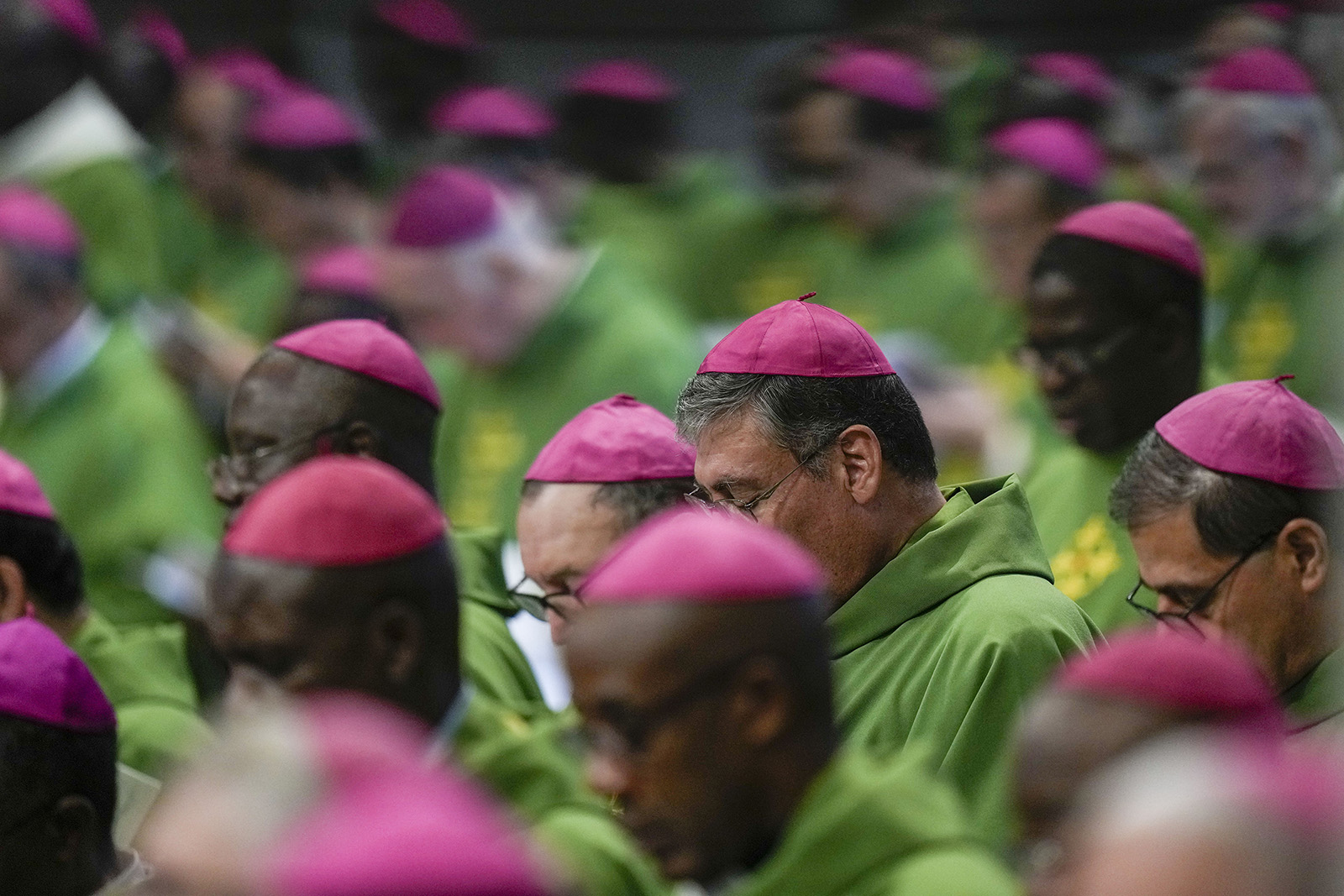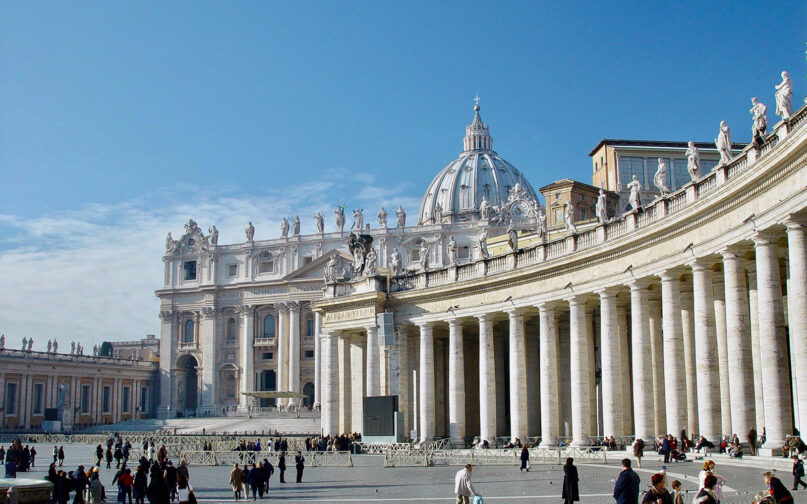VATICAN CITY (RNS) — When the 450 bishops, priests, nuns and lay Catholics who participated in October’s nearly monthlong Synod on Synodality finished their work Oct. 28, they had not called for women to be ordained or the doctrine on homosexuality to be overhauled as many hoped and others feared.
The synod turned out to be, as its name said, about synodality itself, which under Pope Francis means an openness to dialogue, with a focus on lay involvement and collegiality. As for changes to church governance, the most immediate action item seemed to be for bishops who didn’t already have a council of lay people institute one.
Kim Daniels, director of Georgetown University’s Initiative on Catholic Social Thought and Public Life, who was on the synod’s communications commission, said the synod made a priority of “co-responsibility and the involvement of lay people,” adding, “in particular of lay women.”
But when a church’s codes revolve so tightly around its hierarchy of popes, cardinals and bishops, inviting lay people into the everyday management of the church is in some cases a matter of church law more than custom. In their report, the synod’s participants called for “a wider revision of the Code of Canon Law” to clear the way for prelates to act with more synodality.
Many proposals put forward in the synod report are already achievable in canon law, according to Sister Sharon Euart, a canon lawyer and executive director of the Center for Religious Studies. “The canons do need to be reviewed and updated if necessary, but they also call for a fuller implementation of what is already included in the canons,” she said.
One example is pastoral councils, which are popular and already present in some three-quarters of dioceses in the United States, according to church data, though their presence varies in other parts of the world.

Participants of the 16th General Assembly of the Synod of Bishops attend a daily session with Pope Francis, not shown, in the Paul VI Hall at the Vatican, Oct. 16, 2023. (AP Photo/Domenico Stinellis)
In canon law, pastoral councils are not required but are “very much recommended,” Euart said.
But for lay advisers to take a bigger role in their local church or diocesan decisions, some further change to canon law may be required. Geraldina Boni, a professor of canon law at the University of Bologna and author of the book ‘Law in the History of the Church’, said in an email interview that while lay people may now “offer a valuable help to bishops,” mentions of pastoral councils in canon law should not be misinterpreted to mean they are a power-wielding entity.
Another forum where lay Catholics might have a bigger voice are bishops’ conferences. In themselves, these meetings of a country’s prelates are examples of local control. But the synod participants requested “further study” of the “doctrinal and juridical nature” of bishops’ conferences, asking whether canons could be revised to allow lay people to participate in these bodies. As an example they pointed to the Plenary Council that took place in Australia with ample participation by lay Catholics.
According to Euart, “the canons are very broad” in their rules about bishops’ conferences, giving each conference latitude to establish its own statutes. While only bishops may vote, there is nothing in canon law preventing lay people from filling administrative roles, such as the general secretary.
“Some decision-making roles in the church that have traditionally been held by clerics, but do not require holy orders, should be open to everyone,” Euart said.
Currently, the rules about lay participation in bishops’ conferences vary widely, from the United States, where the U.S. Conference of Catholic Bishops’ statutes say the general secretary should be a priest, even if canon law does not require it, to Germany, where church leaders have created a synodal committee that allows lay people to have a say at the diocesan level in parallel with bishops’ conferences.
If canon law offers ample space for lay Catholics to wield influence, telling bishops how to run their dioceses is more complicated. “A bishop is going to interpret and implement his role in a way that he best understands it,” Euart said.
The synod report suggested that injecting synodality into the church should go all the way to the papacy. The code of canon law might “offer dispositions for a more collegial exercise of the papal ministry,” the report said.
Despite his reputation as a reformer who listens to the furthest corners of the church, Francis has not been afraid to use his own authority, issuing 48 papal decrees, more than any of his predecessors, as well as a wide array of letters, bulls and documents.
He has also weakened the Vatican’s Secretariat of State and considerably marginalized the notoriously bureaucratic Roman Curia. Even the massive consultations of the Synod on Synodality will eventually submit to the will of the pope, which can only be tempered by the college of cardinals.

Pope Francis presides over a Mass for the closing of the 16th General Assembly of the Synod of Bishops, in St. Peter’s Basilica at the Vatican, Oct. 29, 2023. (AP Photo/Alessandra Tarantino)
But Euart said that Francis has used his authority most in regard to the direction of the church’s place in the world. “It seems to me that Francis leans more toward authority as being related to mission,” she said. He has shown more latitude when it comes to appointing managers of the church.
There are only four canons relating to the pope, which describe his authority as “full and supreme,” Euart pointed out. But canon law also states that the pope can be assisted by the synod, cardinals and “other persons.”
Francis created a council of cardinals, known as the C9, to advise him in his ministry, and Boni said he could also create other advisory bodies. “One could perhaps think of including members who are not exclusively nominated by the pope or other top-level officials in many of these consultative and advising bodies,” Boni said.
The push for a decentralized church under the guise of synodality has opened the door to these possibilities, as well as other new scenarios.
“As the church becomes more synodal around the globe, my belief is that subsidiary institutions will begin to exercise decision making in a way that deepens participation in the life of the church and communion as the holy faithful people of God,” Daniels, from Georgetown, said.
One of any pope’s greatest powers in shaping the church is the selection of the bishops, but the synod participants even suggested that lay people be included in the vetting, if not the choosing, of possible bishops. Canon law already allows for lay people of “outstanding wisdom” to advise the papal nuncio, the pope’s representative in each country who is charged with bringing candidates before the pope.
“If the consultation on a particular candidate for appointment as bishop is open, honest and broad, the selection process would hopefully result in the nomination of a person with the qualities that could ensure that the exercise of authority is pastoral,” Euart said.

Bishops attend a Mass celebrated by Pope Francis for the closing of the 16th General Assembly of the Synod of Bishops, in St.Peter’s Basilica at the Vatican, Sunday, Oct. 29, 2023. (AP Photo/Alessandra Tarantino)
In the early days of the church, Boni pointed out, it was not uncommon for lay people to voice their support for a bishop by yelling “dignus est!,” Latin for “He is worthy!” “The centralization of bishop nominations in the hands of the Roman pontiff began in the Middle Ages and was consolidated in the subsequent centuries,” she said. There is nothing keeping lay people today from being more involved in “the delicate discernment” of their leaders, she added.
Coincidentally, Nov. 7 marked the 40th anniversary of the current code of canon law, which was promulgated in 1983 by Pope John-Paul II as an update to a 1917 revision. At a celebration for the 1983 code, Cardinal Pietro Parolin, the Secretary of State, said that any changes to how the church operates would have to be reflected in canon law. “There are no realistic alternatives,” he said.
And while some canons may be simply modified, in many cases, changes to the code would mean changing the catechism of the Catholic Church, he said, a more difficult and controversial task.
What is becoming clear is that, with all the talk at the synod of the power of the Holy Spirit, the Spirit will not be the only guide. Earlier this month, Cardinal Matteo Zuppi, a papal ally who heads the Italian Bishops’ Conference, confirmed that at the next phase of the synod, which will be held in a year, there will be more canon lawyers and theologians to help implement synodality at all levels.





